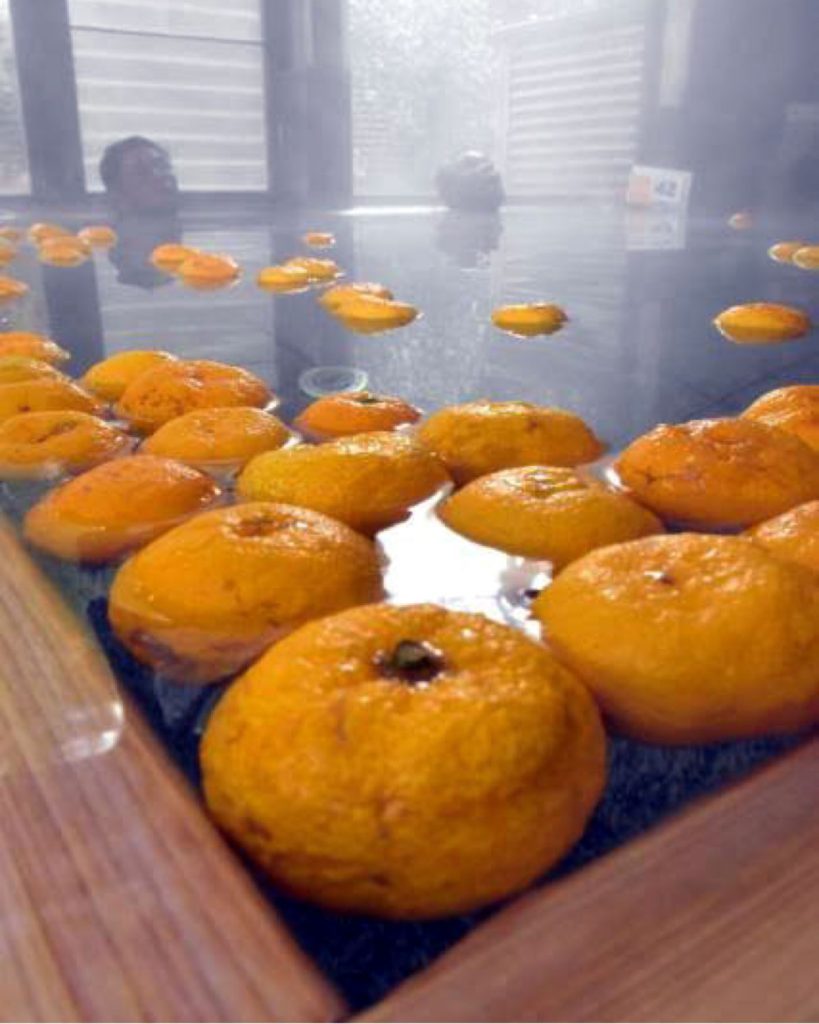
Tomorrow, December 22nd is the winter solstice. It is the day with the shortest daylight and the longest night of the year. There are various customs on the winter solstice, one of which is Yuzu-yu (a hot bath scented with yuzu). Yuzu is said to ward off evil spirits, and it is said that if you take a bath in Yuzu, you will not catch a cold for a year. Yuzu-yu is said to have originated in the Edo period as a way to attract customers to public baths, with the words “touji (winter solstice) = touji (hot spring cure)” and “yuzu = Yuzu-ga-kiku (get better money)”. In this way, the Japanese have enjoyed the four seasons by incorporating them into their daily customs under some pretense. Also, I often hear that “touji-no-sichishu (seven kinds of winter solstice)” are foods for the winter solstice. Eating foods with “n (lucky)” is believed to bring good luck, and if you have two “n”, your luck will double; Nankin, Ninjin (carrot), Lenkon (lotus root), Ginhan (ginkgo nut), Kinkan (kumquat), Kantan, Undon (udon). These are also foods that are often eaten on the day of the winter solstice.
明日、12月22日は冬至です。1年のうちで太陽の出ている時間が最も短くなり、夜が最も長くなる日です。冬至には様々な風習がありますが、そのうちの一つがゆず湯です。ゆずには邪気を払う効果があるとされ、「ゆず湯に入ると一年風邪をひかない」と言われています。江戸時代に「冬至=湯治(とうじ)」、そして「ゆず=融通(ゆうずう)がきく」の語呂合わせから、銭湯で客寄せとしてゆず湯が始まったとされています。この様に、日本人は四季折々、何かにかこつけて生活の風習に取り込み、楽しんできました。また、冬至の食べ物として「冬至の七種」と言うことをよく聞きます。”ん”が付くものを食べることで、縁起がよく運気が上がると考えられ、”ん”が2つ付けば運も倍増するということで、つぎの食べ物7種のことを言います。・なんきん・にんじん・れんこん・ぎんなん・きんかん・かんてん・うんどん(うどん)。これらも冬至の日によく食べられる食材です。
